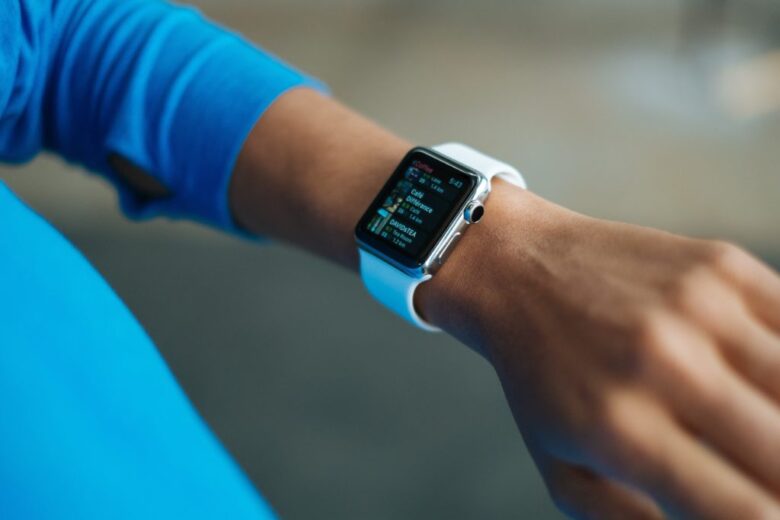Recently, the convergence of technology and health has given rise to a powerful class of devices known as “health wearables.” These technologies are designed to help people track and improve their physical and mental health in real time. From monitoring heart rate to analyzing sleep habits, health wearables have become essential tools for people to live better lives. As the health device market continues to grow, consumers are getting more features, higher accuracy, and a wider range of options to achieve different health goals.
Why Real-Time Health Tracking Matters
The importance of real-time tracking is undeniable. In the past, you may have relied on regular doctor visits or self-tests to understand your health. Health wearables put this data at your fingertips. Whether you’re an athlete striving to improve your sports performance or someone managing a chronic condition like diabetes or hypertension, understanding changes in your vital signs can provide valuable information. This immediacy allows consumers to make quick and informed decisions about their training, diet, and lifestyle.
Smartwatches Lead the Way
Smartwatches are the frontrunners in the health wearable space. Companies like Apple, Samsung, Fitbit, and Garmin are leading the way in delivering multifunctional devices that combine smart features, health monitoring, and exercise tracking. These watches can track sleep cycles, measure heart rate and blood oxygen levels, monitor stress, and even take electrocardiograms. Some models feature GPS for accurate activity monitoring and can connect to health apps for a comprehensive overview of your daily activities. Smartwatches are appealing because they allow you to easily wear a health coach on your wrist.
Fitness Bands and Their Specific Zones
While smartwatches are flexible, fitness bands offer a more precise approach to health. These slim devices are ideal for consumers who want simple and effective technology and are primarily used to track activities such as steps, calories burned, heart rate, and sleep quality. Fitness bands like the Fitbit Charge, Xiaomi Band, and Amazfit Band can also be used to track steps, calories burned, heart rate, and sleep quality. Note: To promote mindfulness, some of these products also include guided breathing exercises, hydration alerts, and workout reminders. They are often more affordable than smartwatches, making them more accessible to a wider audience.
Wearables for Better Sleep
Health relies heavily on sleep, so many modern wearables come with advanced sleep-tracking features. Devices like the Withings Sleep Analyzer and the Oura Ring go beyond just monitoring. They can understand sleep stages, sleep disruptions, heart rate variability, and even nighttime breathing patterns. This knowledge allows consumers to take more control over their rest periods and manage sleep quality through sleep variability. Better sleep leads to better overall health, happier sleep, and increased productivity, making these wearables worth the investment.
Leveraging Technology for Stress Management
In today’s fast-paced world, stress management has become even more important. Stress monitoring and mindfulness technologies have helped health wearables meet this need. Devices like the Apple Watch and Fitbit Sense can track stress through electrodermal activity and heart rate variability. To help consumers relax during difficult times, they also offer mindfulness exercises and breathing exercises. These tools allow consumers to pay more attention to their mental health and take proactive steps to manage their emotional health.
Precision Monitoring and Smart Rings
Not everyone likes to wear a band or watch on their wrist. Smart rings like the Oura Ring and the Motiv Ring are a modest alternative. These rings can measure heart rate, body temperature, sleep, and activity level with great precision. They provide comprehensive health data without being as bulky as watches or bracelets, and they can sync with smartphone apps. Smart rings are both stylish and practical, perfect for those who want continuous monitoring without being conspicuous.
Wearables for Women’s Health
Wearable technology has also made important advances for women’s health. Products like the Bellabeat Leaf and Ava Bracelet are designed specifically to address women’s unique health concerns, offering features like cycle tracking, ovulation prediction, fertility monitoring, and pregnancy tracking, as well as sleep and activity tracking. These wearables are helping women take control of their overall health and better understand and manage their reproductive health.
The Place of AI and Machine Learning in Wearables
The application of AI and machine learning in health wearables is one of the most impressive changes in the industry. These technologies can provide personalized health recommendations and enable devices to learn from users’ habits. For example, your wearable can tell you if your stress levels are consistently high or recommend an ideal sleep schedule based on past behavior. Wearables are smarter and more useful than ever , thanks to AI-driven insights that can turn raw data into meaningful actions consumers can take to improve their health.
Conclusion
Health wearables have become an essential tool for anyone committed to improving their health in real time. From smartwatches and fitness bands to smart rings and sleep trackers, these devices offer a wide range of features that help users track important health metrics, stay active, manage stress, and sleep better. Thanks to advances in artificial intelligence, design, and accessibility, health wearables are more powerful and easier to use than ever before. Whether you have a chronic condition or are just getting started on your fitness journey, there’s a wearable that can help you take better control of your health.
FAQs
1. Which wearable is best for tracking your overall health?
Smartwatches like the Apple Watch Series and Fitbit Sense offer heart rate monitoring, sleep analysis, and stress management features, making them the best choice for comprehensive health tracking.
2. Are health wearables accurate?
While they can’t replace professional medical equipment, most modern wearables provide fairly accurate data for lifestyle changes and monitoring your overall health.
3. Can wearables support your mental health?
Many devices even offer mindfulness tools, guided breathing, and stress tracking to improve your emotional well-being.
4. Do I need a smartphone to use a health wearable?
While some wearables can work independently for minimal tracking, most sync with a smartphone for full functionality.
5. How long do wearables typically last?
The device manufacturer can affect battery life. Fitness bands and smart rings can last a week or more, while smartwatches typically only last 1-2 days.




